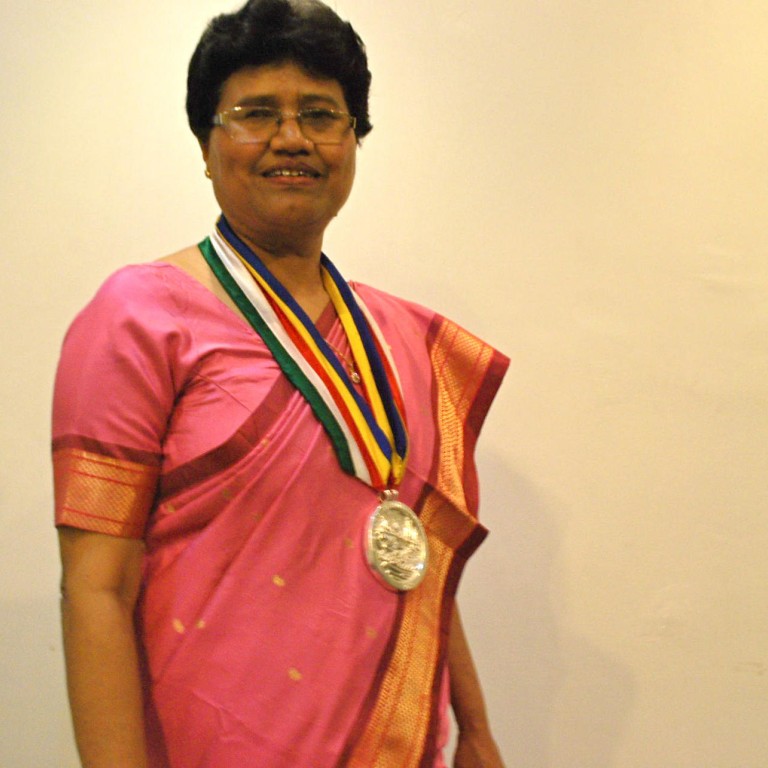
Women climb Indian, Himalayan peaks to defy stereotypes
En route to a historic climb of Mount Nanda Devi, people told Harshwanti Bisht that the sacred peak didn't accept women. But Bisht and two others became the first female mountaineers to reach the summit of India's highest peak in 1981.
En route to a historic climb of Mount Nanda Devi, people told Harshwanti Bisht that the sacred peak didn't accept women. But Bisht and two others became the first female mountaineers to reach the summit of India's highest peak in 1981. Later, she was a member of India's first expedition to Mount Everest that included women.
Besides her mountaineering accomplishments, Bisht is best known for her Save Gangotri Project. For the past two decades, she has been working to conserve the Gangotri area in northern India, the origin of the Ganges River.
"My mountaineering gave me an insight to work for conservation," said Bisht, who was recently awarded the Sir Edmund Hillary mountain legacy medal in Nepal. "It gave me the strength and a vision."

To encourage more women to break into the male-dominated industry, Bisht is now embarking on a new project: Mountain Power Club, an all-women alliance in colleges and universities across the Himalayan region that aims to empower young women through adventure sports.
In Nepal's touristic city of Pokhara, 3 Sisters Adventure Trekking is doing just that. Founded by three siblings, the agency is run by and for women travellers. Meanwhile, their non-profit association, Empowering Women of Nepal (EWN), has trained more than 1,800 women from different parts of the Himalayan nation.
Lucky Chhetri, the eldest sister, said EWN had produced a number of female trekking guides and mountaineers, raising the profile of local women in the tourism industry. Four of their graduates became the first Nepali women to ascend the 7,525 metre Annapurna IV peak.
"This profession helps women take leadership roles, as guides, climbers," Chhetri said. The Nepali women followed in the footsteps of Pasang Lhamu Sherpa, Nepal's first woman to stand atop the world's highest peak, Mount Everest, in 1993, who died during her descent.
Mountaineer Peter Hillary, son of Sir Edmund Hillary, said women mountaineers are "just as good as men". "It's really empowering, women deciding to climb mountains and have these edifying, uplifting experiences. It's a progressive situation."

